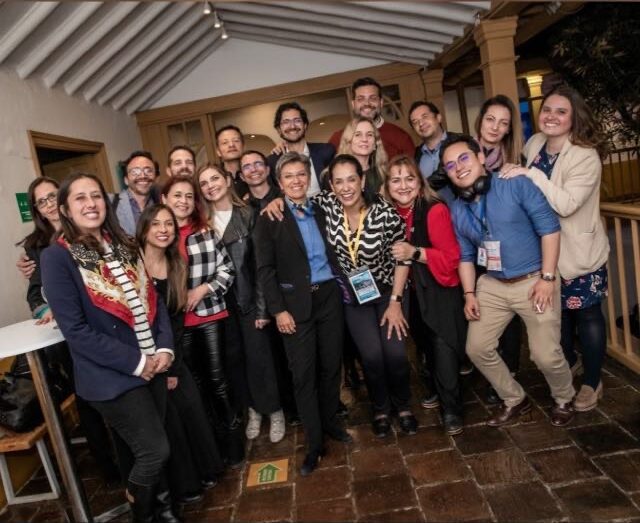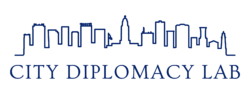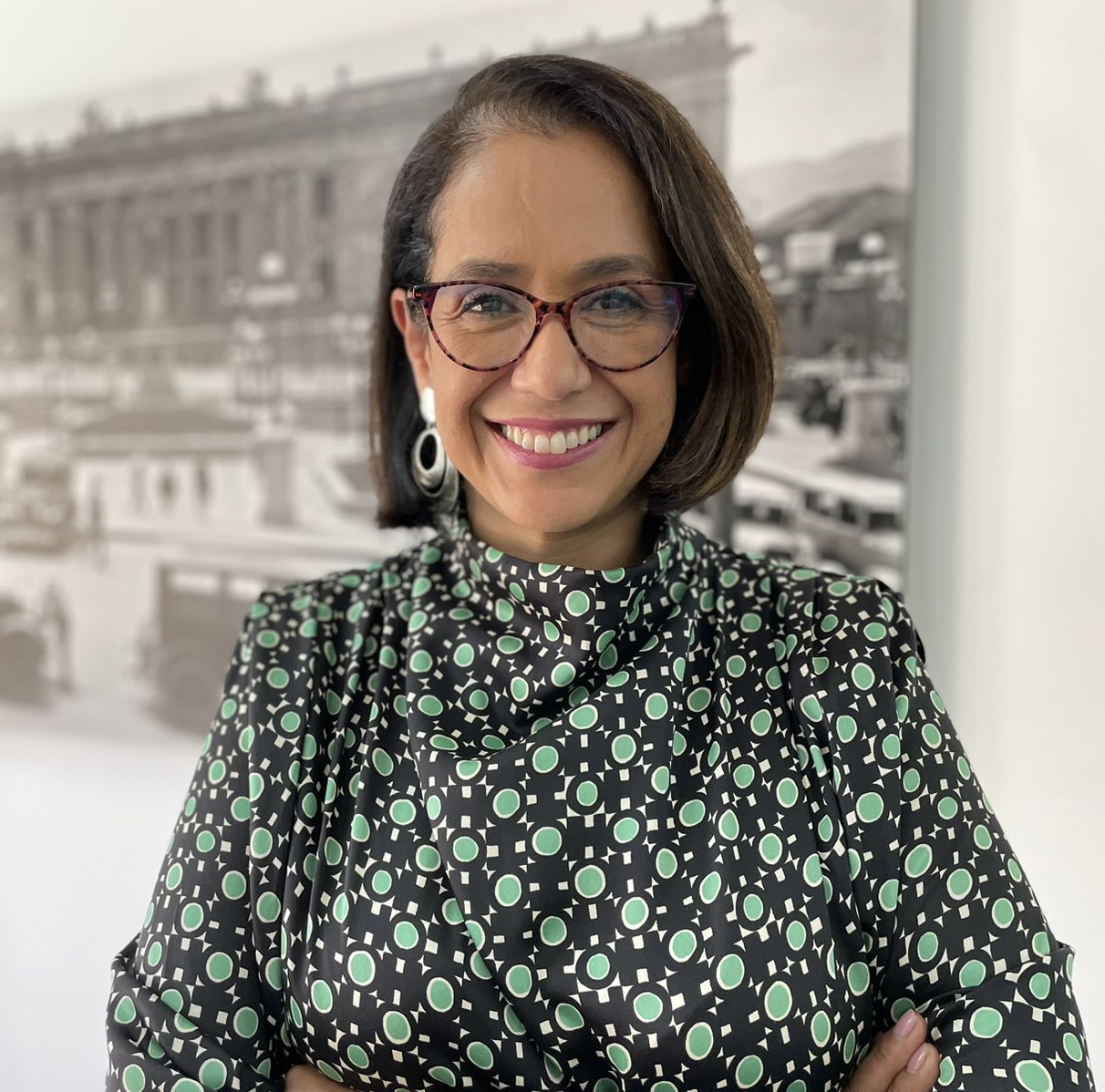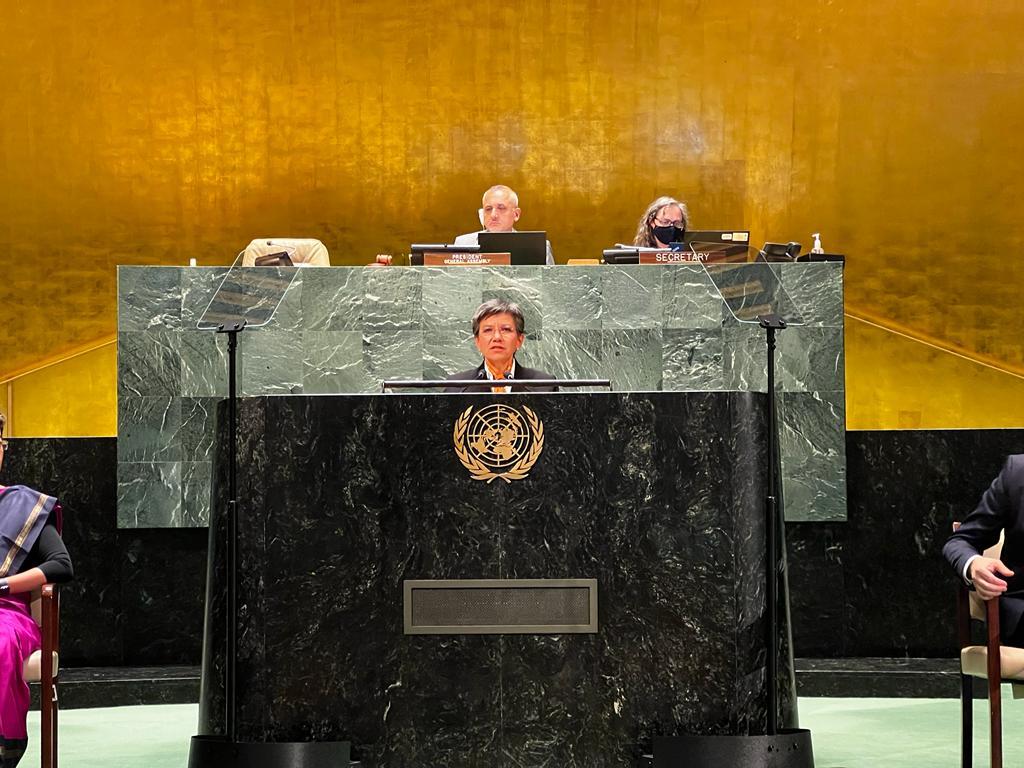What does it mean to lead the international relations of a global city? What are its main challenges, lessons learned, and rewards? Our new series on chief city diplomats opens with an interview with Luz Amparo Medina Gerena, Director of the Office of International Relations in Bogota and Member of the City Diplomacy Lab Advisory Board.
What path led you to become a city diplomat?
This experience in Bogotá was my first experience in city diplomacy. I had previously worked at the national level in various diverse sectors such as culture, education, science, technology, and disaster risk management within the field of international relations. I also worked for intergovernmental organizations, such as the United Nations Development Program and the General Secretary of the Organización de Estados Iberoamericanos (OEI) in Madrid. So, while I had a strong background in international relations, the opportunity to engage in city diplomacy arose with the election of Claudia López as Mayor of Bogotá. She invited me to be part of her team, and it has been one of the greatest experiences and honors of my professional career. I must acknowledge, though, that I did not have significant prior experience in the field of City Diplomacy until this opportunity came along.
What was the most complex challenge you faced as the director of Bogotá’s International Relations Office, and how did you deal with it?
My job entails a constant problem-solving attitude. The success of city diplomacy in materializing international partnerships comes with a never-ending series of challenges of different natures and scales. However, perhaps the most challenging task I faced in this position was during the first year of our term in office in 2020. The COVID-19 pandemic hit only two months after the start of Mayor López’ mandate. In that context, the office of international relations had to provide information to the Mayor and her cabinet to inform two parallel processes. On the one hand, the response to a global pandemic in a city like Bogotá, home of 8 million people and that holds relevant competencies in the sanitary system, required close consultations with cities around the world to confront a challenge that humanity had never experienced before. At the same time, we also engaged in international benchmarking for the design of the Development Plan of Bogotá, which was approved in June 2020 by the city council. So, the first semester of 2020 was a very challenging time for all of humanity, for this office, and for me as the director. Meeting the demands at these two complex and intense levels was perhaps the greatest challenge. It required mobilizing resources and knowledge, as well as engaging in crosscutting interactions with the entire administration. However, the role of global relations at the local government level truly made a difference in terms of saving lives through the measures implemented and became an opportunity to gain legitimacy within the administration.
What is the most treasured moment in your city diplomacy career?
I am fortunate enough to have led a team that accomplished numerous milestones through rigorous international action over the past four years. A significant achievement in city diplomacy was the compromise we reached with Guangzhou’s authorities to have a shared term for Metropolis’ Presidency in 2021. The two cities agreed on splitting the three-year term into two periods of 18 months for each city, something the network had never done before. This involved not only engaging with all Western countries’ cities supporting Bogotá but, particularly, speaking with cities in Asia and Africa that supported Guangzhou’s candidacy. The campaign triggered truly enriching conversations conducted virtually amid the pandemic. Securing that Presidency, even if shared, was very exciting, especially because it was achieved after negotiations with a city that had been working towards it for more than six years. Metropolis is an interesting political and technical platform to foster interactions between metropolitan spaces around the world. Bogotá’s innovative approach to the creation of its own metropolitan region was positively impacted by its role in the network but also influenced the discussion on the challenges and opportunities of collaboration between different levels of government.
Another highly exciting moment for me as a city diplomat was Mayor López’ intervention at the United Nations in April 2022, in the framework of the convening to assess the progress in the implementation of the New Urban Agenda (NUA). She was designated as one of the four voices of local governments from around the world to report on the challenges, opportunities, and difficulties in implementing the New Urban Agenda. I will never forget the image of her addressing the United Nations General Assembly, calling for the recognition of local governments as the key implementers not only of the NUA but also of the main global development agendas such as the SDGs and the Paris Agreement. Her approach, which is based on caring for the people, democracy, and the planet, I believe, truly resonated with the audience. This opportunity consolidated her role as a strong voice from the cities of the Global South and paved the path to her designation as UN-Habitat Ambassador for the New Urban Agenda in the framework of the World Urban Forum held in Katowice in the summer of 2022.
In your opinion, how will the work of city diplomats evolve in the coming years?
I believe we need to understand the context we are immersed in today. There is a profound questioning of the effectiveness of the multilateral state-based system that emerged after World War II. There is a growing comprehension that there are other actors implementing global development agendas beyond nation-states. These actors include not only local governments but also representatives from the private sector and civil society. In these diverse entities, we find the ones that make things happen.
In that sense, I believe that the role of city diplomacy or, more precisely, the global action of subnational governments, will have a significant opportunity to have a much stronger presence and voice in the multi-level and multi-actor global conversation in the coming years. Perhaps, city diplomacy will even become a formal dimension of a renewed multilateral system. I think the goal of this process is to influence and contribute to transformative actions to address the global climate and social crises by creating opportunities, especially for young people and women, and ultimately contributing to greater well-being in societies. I believe that the global action of local governments will play a leading role in many of these transformations in a world shifting from highly vertical power structures to more horizontal ones. In this horizontal landscape, local governments are likely to become more important and relevant for global development.
Therefore, city diplomats will play a substantial role in facilitating the integration of global perspectives into local processes and, at the same time, impacting local policies from global trends. In times of wars led by national states, city diplomats should be open to keeping the conversation at the local level and preserving channels of dialogue in an increasingly multi-polar and diverse world.
What advice would you offer those wanting to pursue a career as a city diplomat?
As I mentioned before, in a rapidly changing world, cities are key implementers of the global agendas. Professionals entering city diplomacy will need to balance soft skills with technical knowledge. They must acquire and maintain a constant willingness to learn sectoral matters essential for the implementation of global agendas with the instruments local governments can provide. A minimum capacity to understand the specifics of the different sectors is necessary, and this requires an open mind to get acquainted with new knowledge and perspectives.
Unlearning is also crucial; we must learn to adapt because the world is changing rapidly, and technologies are advancing. What is valid today may not be tomorrow, and this speed of change will progressively increase.
I also believe that new professionals will need to develop a certain level of resilience to frustration and detachment from results. As city diplomats, we serve as facilitators between global stakeholders and local government officials. Often, outcomes and impacts do not depend directly on our performance but on sectoral servants responsible for program design and implementation.
Furthermore, developing an interdisciplinary approach to our work is essential. If this is not provided by academic training, professionals must have an open disposition to cross knowledge, disciplines, and information in real time. Collaboration is the backbone of city diplomacy. If there is no collaboration or potential for collaboration, city diplomacy loses its meaning. Therefore, city diplomats need an attitude that facilitates and smooths the work within the local government, with different levels of government, and other cities and international stakeholders. Through this collaboration, collective action can be leveraged to positively impact the significant challenges humanity faces today.




